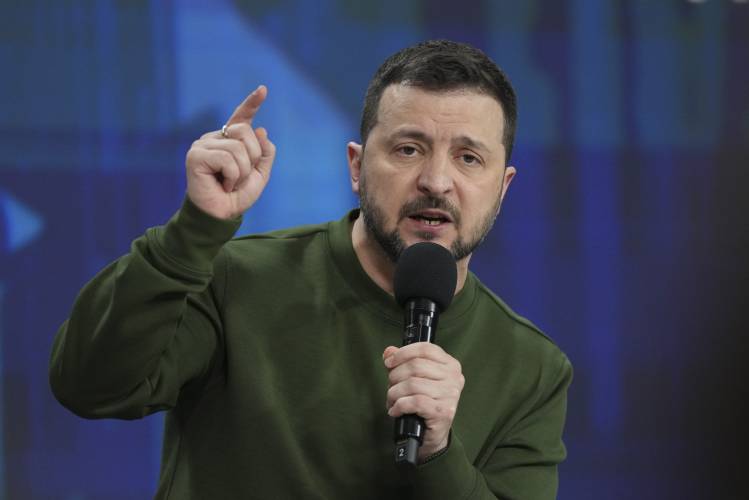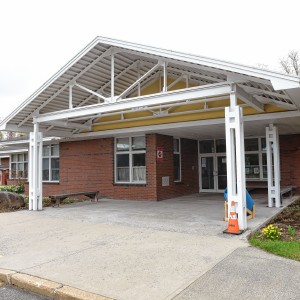David Ball: Justice, nuclear safety on the side of Ukraine

Ukrainian President Volodymyr Zelenskyy answers media questions during his press conference in Kyiv, Ukraine, Sunday Feb. 25, 2024. AP PHOTO/EVGENIY MALOLETKA
|
Published: 02-26-2024 6:14 PM
Modified: 02-26-2024 6:14 PM |
Three things stood out for me in Martin Schotz’s guest Column on Ukraine [“Rethinking U.S. interests on anniversary of war in Ukraine,” Gazette, Feb. 23]. First, the oddity of seeing someone who is presumably a liberal pacifist taking the same position today (not in the past) as Putin’s friend Donald Trump and the latter’s lackey Mike Johnson. To put it simply: stop helping Ukraine and let Putin “negotiate” a deal giving the country to Putin. Second, the use of words as smokescreens. Russia’s invasion of a smaller, weaker neighbor is called “Russia’s military operations.” Putin first called the invasion a “special military operation.” Third, the inversion of reality: the writer thinks the threat of nuclear war is becoming greater as Ukraine resists Russian invasion. The opposite is true. If a nuclear power can blackmail a weaker neighbor into submission —sorry, “negotiation” — by invading it, then China and North Korea could do the same. In that case, why wouldn’t China invade Taiwan and North Korea invade South Korea? And then we would have a far greater risk of nuclear war: the United States would not just stand by and watch. Ukraine’s resistance is actually lessening the risk of nuclear war. The writer says he is a member of the Traprock Center for Peace and Justice. But justice is firmly on the side of Ukraine, not Russia.
David Ball
Northampton

 My Turn: Stop taking all equity in home seizures now
My Turn: Stop taking all equity in home seizures now Robert McGahan: Will Emmet selflessly gives time and energy to town
Robert McGahan: Will Emmet selflessly gives time and energy to town Pam Roberts: Come join Buddy Baseball's new season on May 11!
Pam Roberts: Come join Buddy Baseball's new season on May 11! Bill and Jean Gran: Heath Select Board needs Mike Smith’s broad experience
Bill and Jean Gran: Heath Select Board needs Mike Smith’s broad experience
